Lawyers Representing Catholic Church Sex Abuse Victims: Scandals, Cases Compensation
Lawyers representing victims of Catholic Church sexual abuse are deeply committed to securing justice and compensation for survivors. Fueled by extensive investigations, such as the Boston Globe's 2002 exposé, legal professionals confront the extensive history of abuse and systematic cover-up by church officials. Specialized attorneys offer compassionate guidance through the legal process, tackling powerful religious institutions to guarantee survivors' voices are heard and acknowledged. Settlements exceeding $3 billion underline the financial impact and scope of the crisis, with individual cases spotlighting the critical role of legal advocacy in facilitating accountability and reform. These efforts not only champion a survivor-centered approach but also signal a broader call for systemic change, promising a path toward healing and prevention for future generations. Further exploration reveals the intricate landscape of legal, emotional, and societal efforts aimed at rectifying the profound injustices faced by survivors.
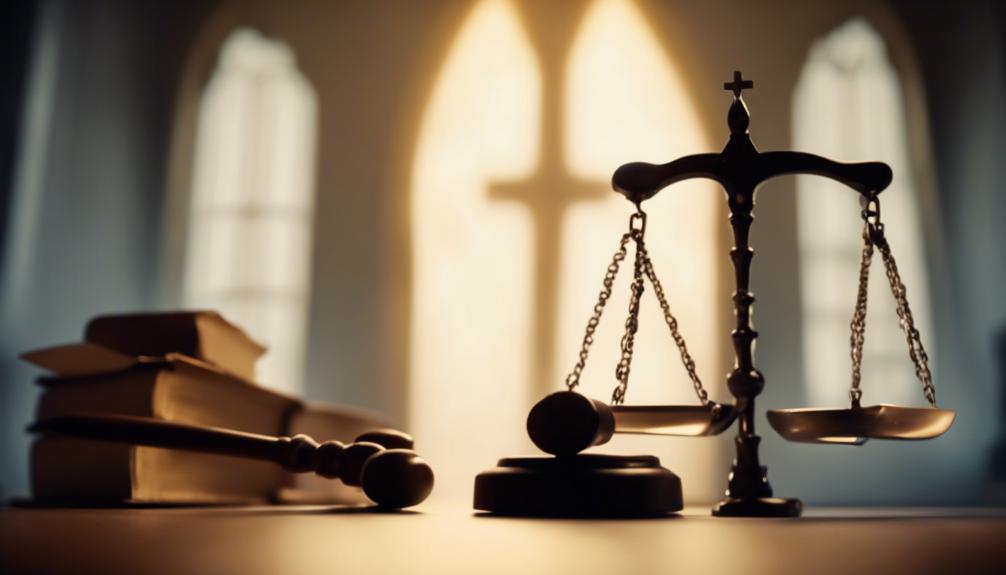
Historical Scandals Uncovered
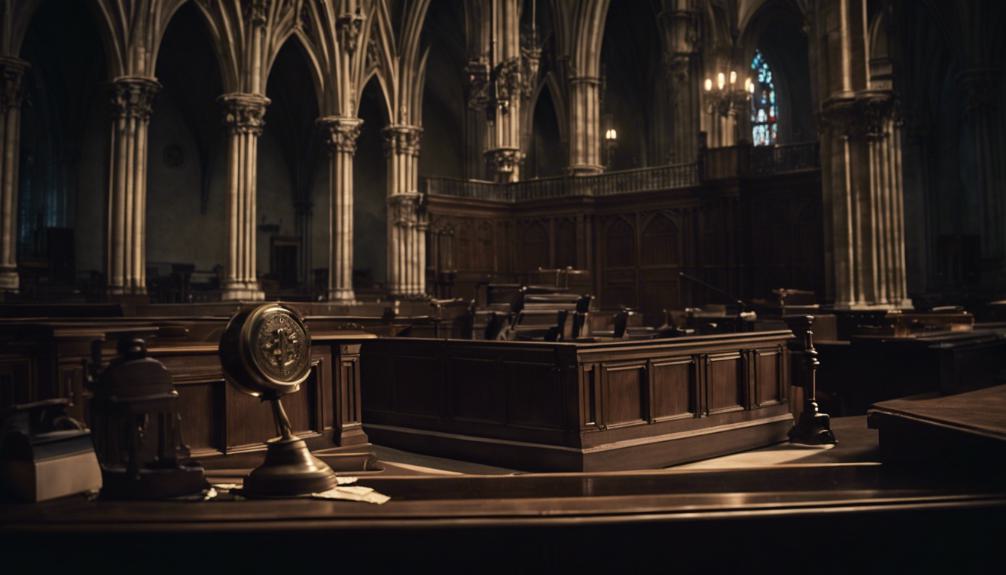
As the Boston Globe's groundbreaking investigation in 2002 revealed, the Catholic Church had been concealing the widespread sexual abuse of children by priests for decades, marking a pivotal moment in uncovering historical scandals within the institution. This exposure brought to light a longstanding problem, where reports of child sex abuse were largely ignored by church officials. The investigation detailed how offending priests were often quietly sent to facilities dealing with personal issues, including pedophilia, instead of facing legal consequences. The scandal led to lawsuits and settlements with Catholic dioceses nationwide, uncovering a disturbing pattern of abuse and cover-up. The Boston Globe's extensive coverage was instrumental in raising awareness about the systemic nature of the abuse, challenging the Church's historical silence and initiating a critical dialogue on accountability and reform.
Churchs Response to Allegations
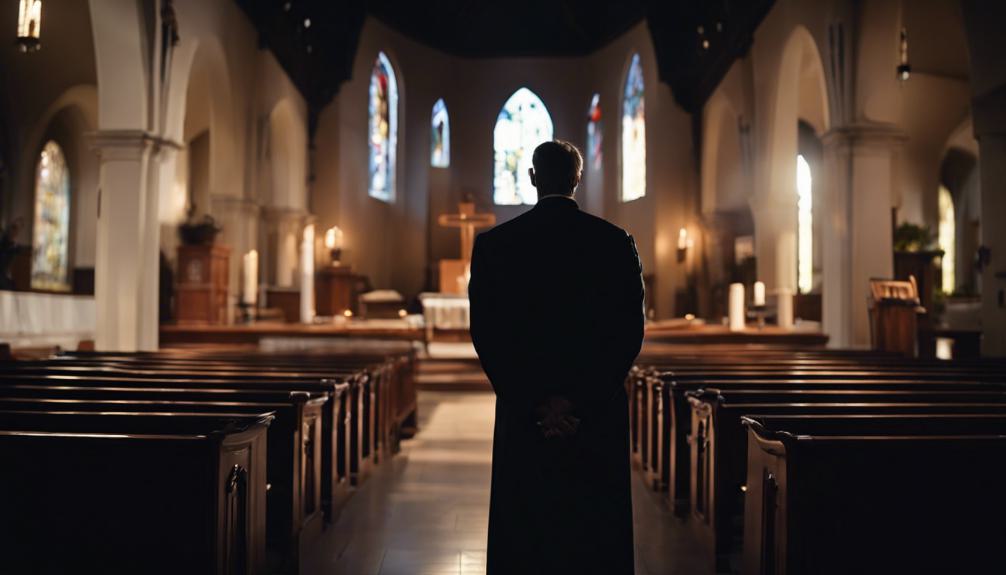
In addressing allegations of sexual abuse, the Catholic Church's response has been scrutinized for its effectiveness and transparency. The Church has historically been accused of dismissing reports from abuse survivors and hiding widespread sexual abuse for decades. Investigations have revealed problematic handling of abuse cases, with offending priests often sent to facilities for personal issues, including pedophilia, rather than being held accountable. This approach has led to further abuse and stifled public awareness. Criticism has mounted over the Church hierarchy's dismissal of survivors' reports, challenging the institution's commitment to addressing the crisis. The Church's handling of abuse cases has not only perpetuated the cycle of abuse but also hindered efforts to bring about meaningful reform and healing for victims.
Legal Support for Victims
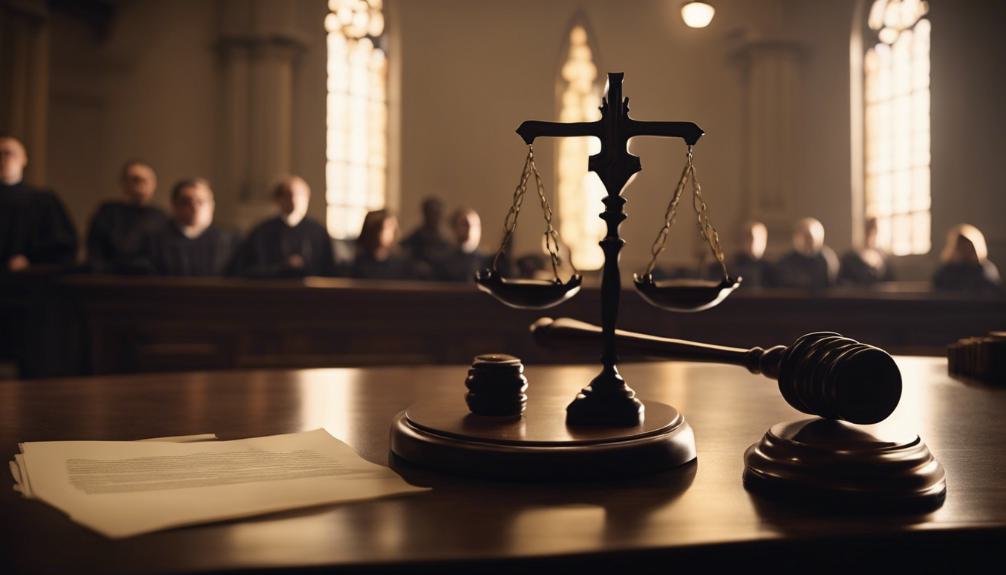
Recognizing the Church's historical shortcomings in addressing abuse allegations, legal support for victims has become increasingly essential. In response to the widespread and well-documented instances of sexual abuse within the Catholic Church, a specialized network of attorneys has emerged, dedicated solely to representing survivors of clergy sexual abuse. These legal professionals possess a deep understanding of the complexities involved in such cases, including the challenging task of confronting powerful religious institutions. They offer invaluable support, guiding survivors through the legal process with compassion and expertise, ensuring that their voices are heard and their rights are upheld. Additionally, the availability of free consultations and the establishment of trusted organizations associated with legal representation underscore a commitment to accessible justice for all victims, regardless of their financial situation.
Compensation and Settlements
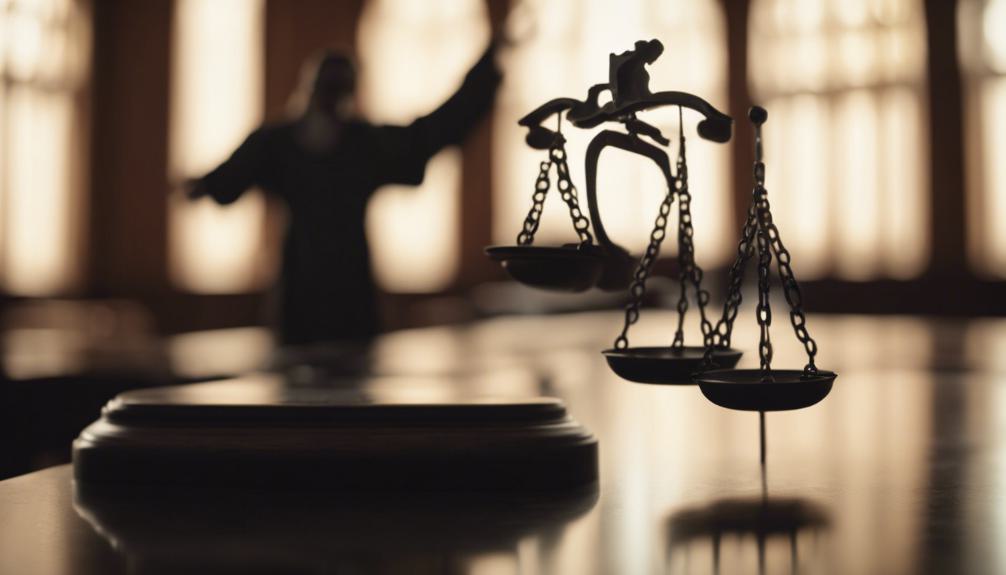
The financial repercussions of the Catholic Church sex abuse scandals have led to settlements surpassing $3 billion, reflecting a significant financial strain on the institution due to compensation for victims. These settlements emerge from over 3,000 lawsuits filed nationwide, spotlighting the magnitude of the crisis. With an estimated average annual payout of $300,000 per diocese in the U.S., the economic impact is profound. Some individual settlements have reached into millions, cumulatively imposing over $3 billion in costs on the Church. This financial burden has been so severe that six dioceses have declared bankruptcy. The persistent rise in new allegations continues to add to the Church's financial woes, underscoring the ongoing challenge of addressing past abuses while aiming for accountability and justice for survivors.
The Role of Investigative Journalism

Investigative journalism has played a pivotal role in unmasking the widespread sexual abuse scandals within the Catholic Church, bringing significant public attention to a deeply concealed issue. Through painstaking research, interviews, and analysis, journalists have shed light on the systematic abuse and cover-up perpetrated by church officials. The Boston Globe's 2002 exposé stands as a seminal moment in this ongoing effort, revealing a disturbing pattern of abuse and institutional negligence. This relentless pursuit of truth has not only informed the public but also empowered survivors to come forward with their stories, challenging the culture of silence that pervaded religious institutions. Investigative journalism's critical role in exposing these scandals underscores its importance in upholding accountability and facilitating the pursuit of justice for victims.
Impact on the Catholic Church

Building on the foundation laid by investigative journalism, the impact of the sexual abuse scandals has profoundly altered the Catholic Church's public image and internal policies. The revelations have eroded trust in an institution once seen as a moral pillar, prompting a crisis of faith among the faithful. Internally, the Church has been forced to confront its past failures, leading to the implementation of stricter policies regarding the handling of abuse allegations and the protection of children. The financial strain from settlements, which have exceeded $3 billion, has also spurred dioceses across the United States to declare bankruptcy. This financial repercussion, coupled with a tarnished reputation, has compelled the Church to undertake significant reforms in an effort to restore faith and credibility.
National Attention and Change
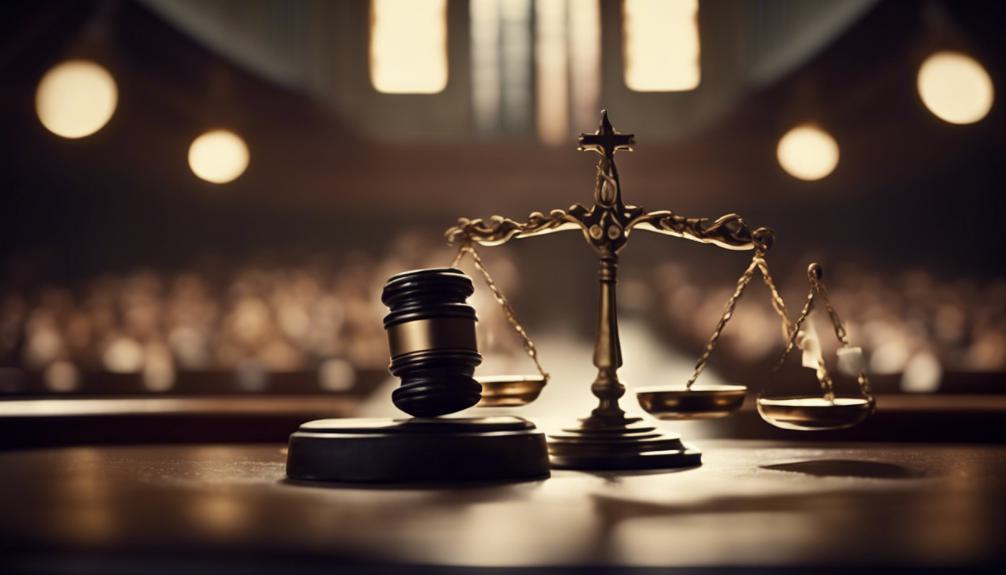
Widespread media coverage and investigative reporting have greatly heightened public awareness and catalyzed structural changes within the Catholic Church in response to the sex abuse scandal. The profound impact of these revelations has not only shone a light on the longstanding issues of abuse and cover-ups but has also spurred both legal and societal demands for accountability and reform. This national attention has led to significant legal actions across the United States, with victims coming forward to seek justice for the wrongs they suffered. The public outcry and subsequent legal battles have forced the Church to confront its past, leading to an acknowledgment of the need for systemic change to prevent future abuses. This shift towards transparency and accountability marks a critical step in addressing the scandal and supporting survivors.
Geographic Scope of Legal Assistance

The geographical scope of legal assistance for survivors of Catholic Church sex abuse spans across multiple states in the United States, including Pennsylvania, New Jersey, New York, and others, reflecting the widespread need for legal support and justice. This extensive coverage guarantees that survivors in various locations have access to experienced attorneys capable of maneuvering the complexities of clergy abuse cases. The presence of legal professionals across such a broad range of states not only illustrates the pervasive nature of the issue but also emphasizes the legal community's dedication to providing justice for survivors. With legal expertise available in states from coast to coast, survivors are better positioned to pursue compensation and hold accountable those responsible for their suffering.
Survivor Advocacy and Healing

Acknowledging the geographical scope of legal assistance demonstrates the far-reaching impact of clergy abuse, yet it is equally important to focus on the role of survivor advocacy and healing in these individuals' journeys towards justice and recovery. Advocacy groups and survivor networks play a pivotal role in providing the emotional and psychological support necessary for healing. These organizations often act as vital intermediaries, facilitating access to legal representation and counseling services, while also working to raise public awareness about the systemic issues leading to abuse. They champion a survivor-centered approach, ensuring that those affected are not only heard but are also active participants in their path to healing. This holistic approach underscores the importance of addressing both the legal and emotional needs of survivors, fostering an environment where recovery is possible.
Financial Strain on Dioceses

Facing an unprecedented wave of lawsuits related to sexual abuse scandals, numerous dioceses across the Catholic Church have encountered severe financial difficulties, leading some to declare bankruptcy. This financial strain emerges in the wake of settlements and legal costs associated with addressing the long history of sexual abuse within the institution. The Catholic Church has seen the total amount of settlements exceed $3 billion after 2012, with individual dioceses shouldering an estimated annual payment of $300,000 on average for child sex abuse charges. These expenses, coupled with the constant rise in new allegations, have markedly impacted the Church's financial stability, forcing six dioceses to file for bankruptcy due to the overwhelming financial losses from settlements.
Future Steps in Addressing Abuse
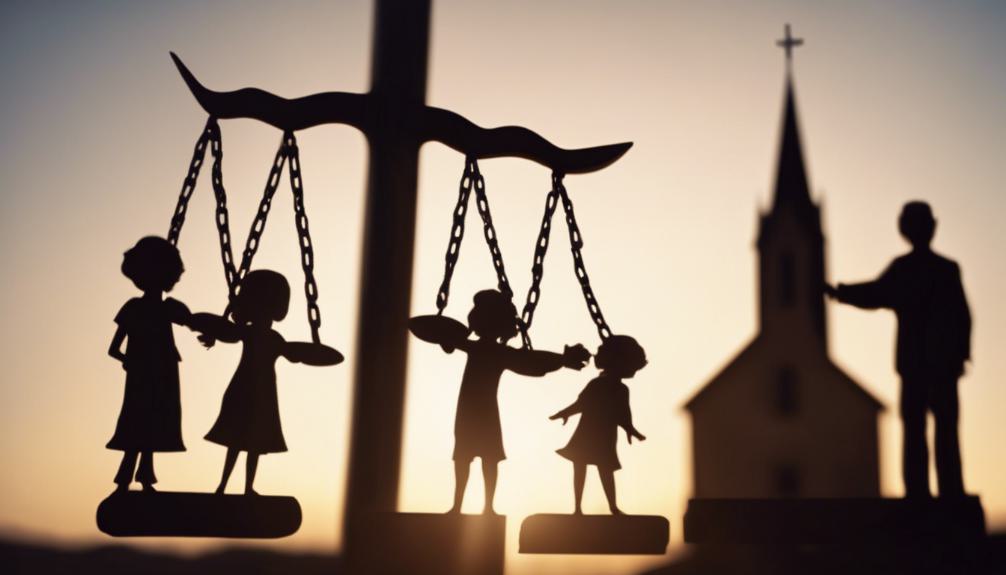
In light of the ongoing challenges, it is crucial for both the Catholic Church and legal authorities to devise more effective strategies to prevent abuse and guarantee justice for victims. Future steps should include the implementation of more rigorous screening and training processes for clergy members, alongside the establishment of transparent reporting mechanisms that empower victims and witnesses to come forward without fear of retribution. Legal frameworks must be strengthened to make certain that allegations are thoroughly investigated and that justice is served swiftly. Collaborative efforts between the Church, legal entities, and survivor advocacy groups are vital in creating an environment where abuse is not only addressed promptly but prevented through education, awareness, and systemic change.

This post has been generated by AI and was not reviewed by editors. This is Not legal advice. Please consult with an attorney.




